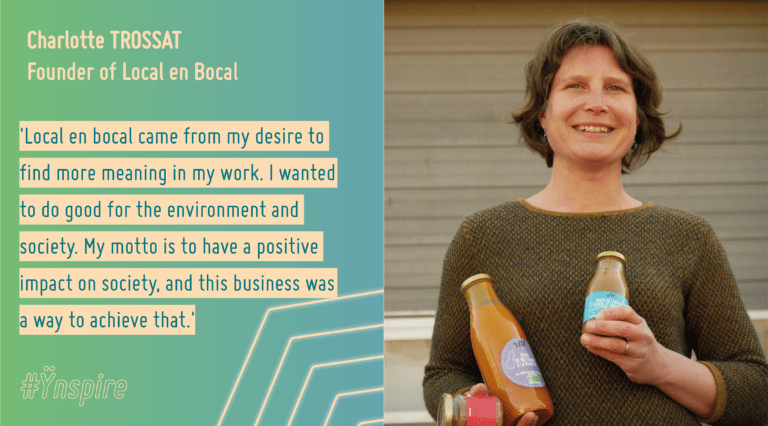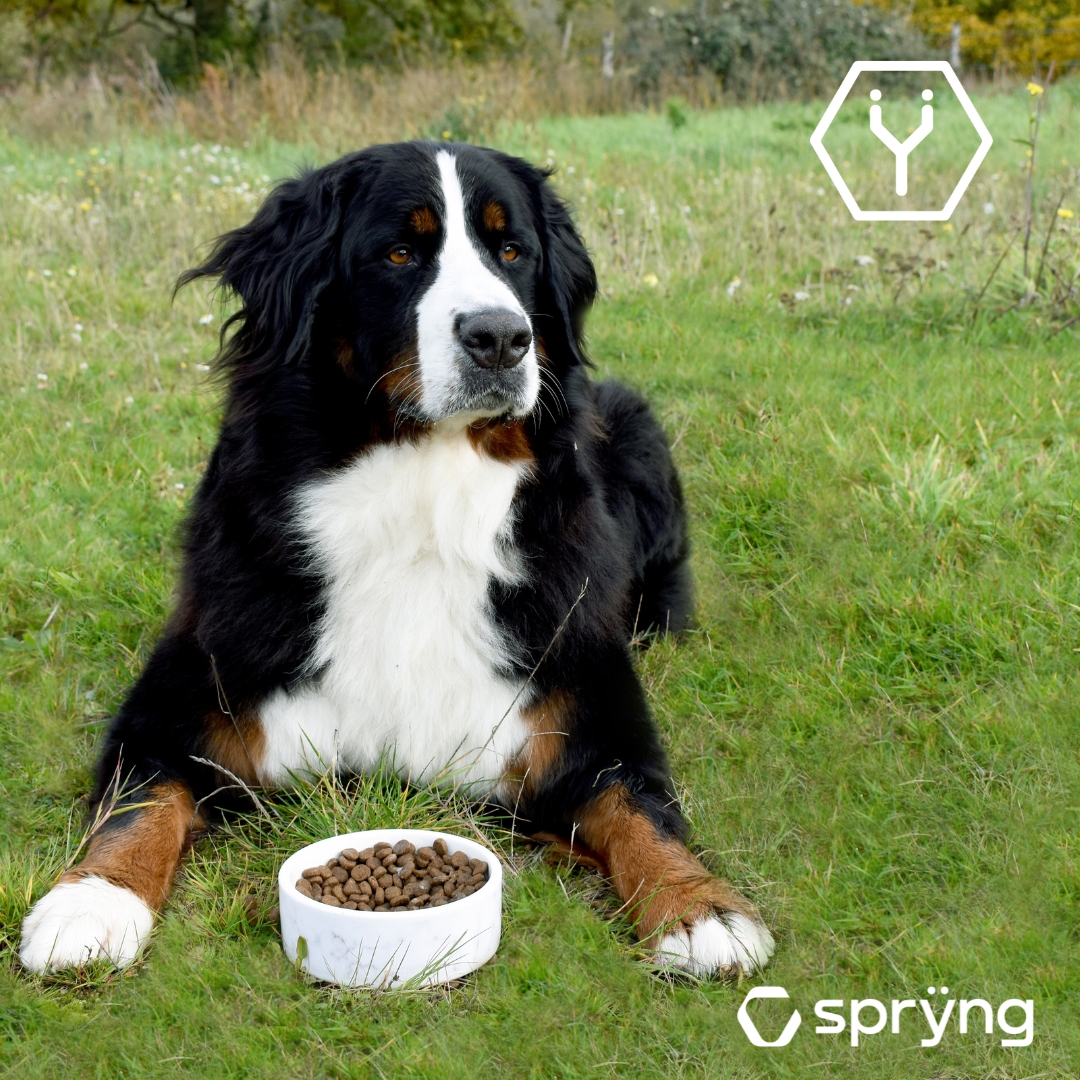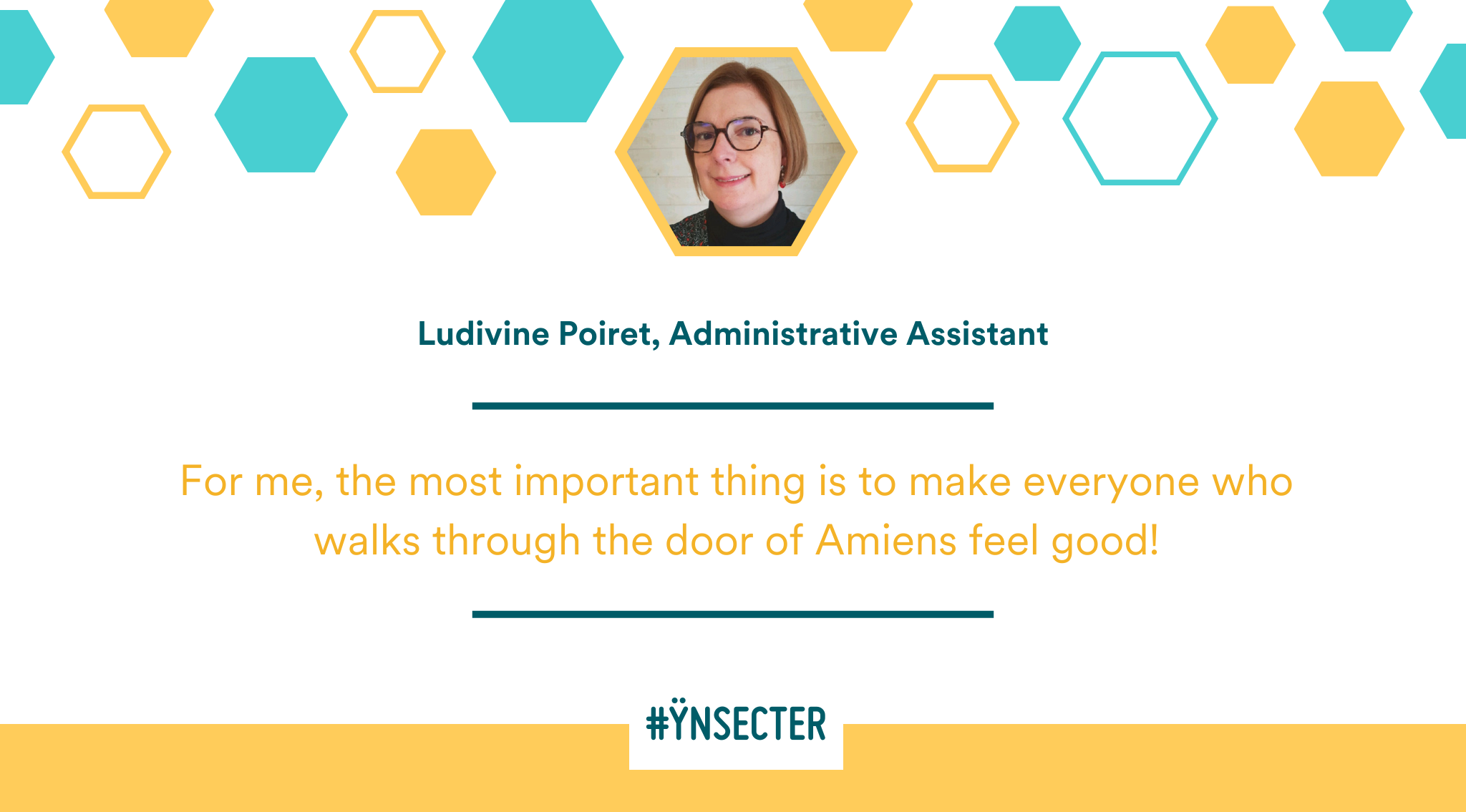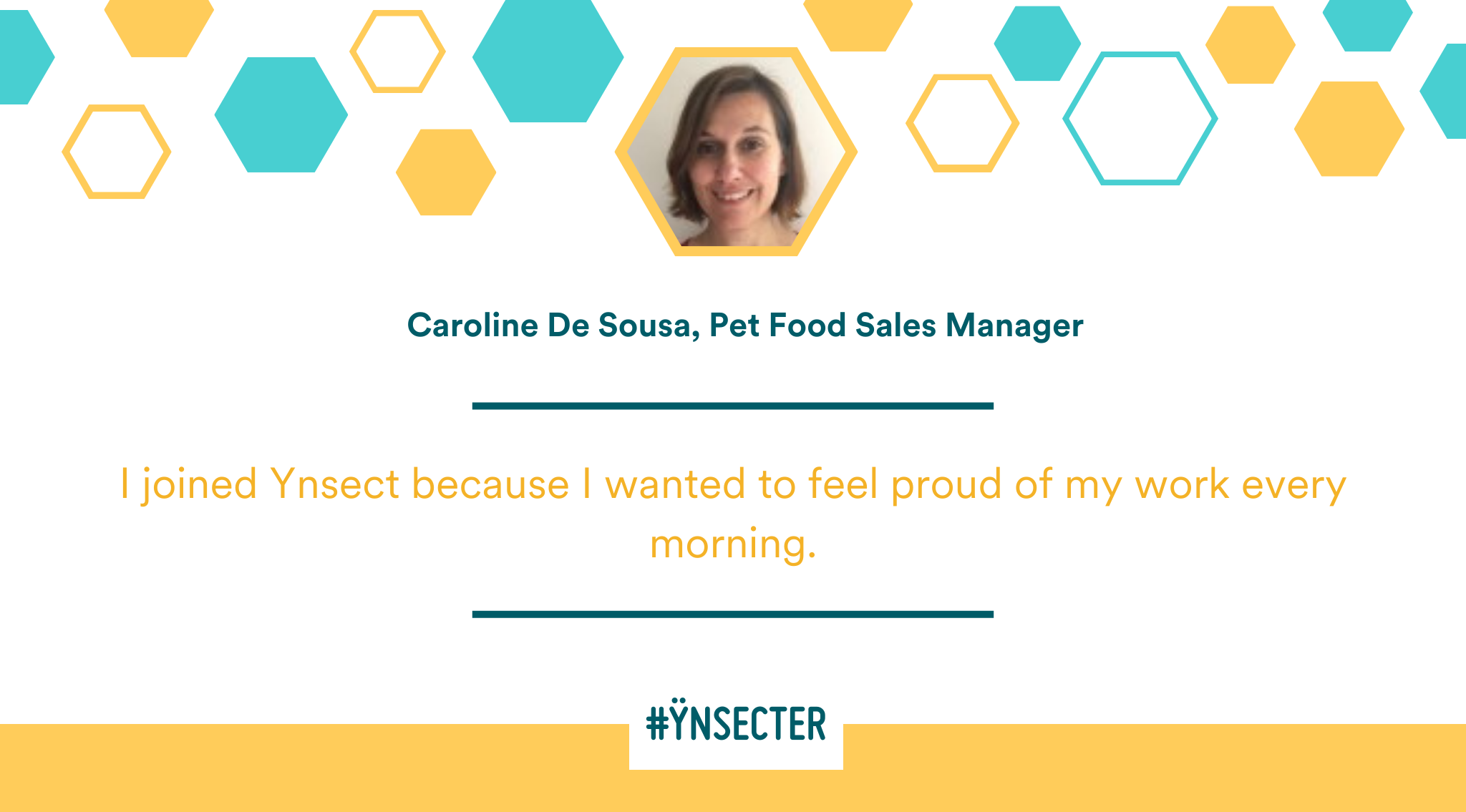Can you describe your company in a few words?
Local en Bocal is an artisanal cannery! We buy fruits and vegetables from local producers that can’t be sold in supermarkets, such as those that are: damaged, or ” dirty “. We then cook them to make soups, compotes, etc., half of which is sold by our brand A côté, and the rest by other brands such as Les trois chouette, La vie Claire etc. Even though we have automated parts of the process, we still do a lot by hand: we sort and prepare the vegetables, and systematically taste our products to make sure they taste good! This artisanal feels is essential for us.
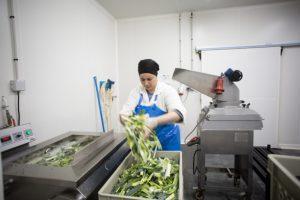
You worked for 10 years as an engineer. Why did you suddenly launch your own company to produce soups, compotes, etc.?
Local en bocal came from my desire to find more meaning in my work. I wanted to create something real, which I’ve always loved to do, but I had lost sight of it in my old job. I also wanted to be in touch with nature and the countryside. But above all, I wanted to do good for the environment and society. My motto is to have a positive impact on society, and this business was a way to achieve that. The project was inspired by my brother-in-law, a market gardener, who wanted to make something with his vegetables. I started to study the market in order to find solutions. In the end, he chose not to pursue the adventure, but I did. In October 2015, Local en Bocal opened for business!
How do you choose the producers you work with? And the retailers?
First of all, they have to be organic. Then, we take into account the distance: the producers must be as close as possible: we do not go further than 150km as the crow flies. I also want them to share our philosophy: we have established a set of guidelines and try to respect them as much as possible. For the resale, we are part of a specialized organic network that prohibits us from dealing with large-scale distribution. Therefore, we prefer small organic stores.
You have worked with school cafeterias in Avignon. Why was this step with children important?
I have always wanted to work with school cafeterias, and especially with children because they are very receptive. Children are vectors of change. The cafeterias in Avignon decided to take control of their menus and wanted to make soup, but did not have the necessary equipment. I read an article about it and went directly to them to offer to collaborate, and we built the offer together! Thanks to this association, children at school are eating quality products that they would not necessarily have access to at home.
How do you convince consumers to eat local?
In my opinion, eating local means knowing the producer and the product. It allows us to better understand what we are eating and from where. People often ask producers a lot of questions, so their interest is a good sign of progression. On our side, we are very active on social media, in order to educate consumers. We punctually participate in markets and fairs to meet people and let them taste our products. We also like to open the factory up to children and teenagers. We hire a lot of interns, welcome job seekers and encourage professional reconversions. In short, we try to meet as many local people as possible to show and explain to them what is on their plate.
What are the values that guide your daily actions? What are the ones you would like to pass on?
Obviously, everything that concerns the fight against waste, strong relationships between industry players, job creation, etc. But I would also like to pass on other strong values that we have collectively established within the company: mutual aid and respect, the continuous search for improvement, diligence, passion, and conviviality. All of these elements must remain constant over time. On a daily basis, to keep these values alive, we have a few initiatives: we have lunch together once a month, always organize a team day that is both educational and fun, put on a Christmas party…, in short, we do a lot to keep moving forward together!
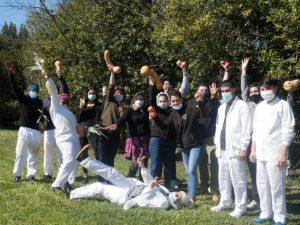
At Ynsect, we have 5 values (explorer, authenticity, adaptability, balance and solidarity), which one speaks to you the most?
It’s hard to choose… but I would say solidarity! On a daily basis, everyone is busy with his or her main missions, and is not always aware of the challenges facing other employees. But if there is a problem, I want everyone to be able to ask for help, and receive it! This is something I really expect from my team! Moreover, reaching out to people that are out of work is part of our DNA, since we are an Integration Company.
In only 5 years, you have established many partnerships and created 10 jobs in the Avignon region. How do you plan for the future? Do you envisage a national/international strategy?
We still have a lot of work to do in the region before thinking of moving elsewhere. First of all, we have to build a factory adapted to our production needs. We are adapting to our growth, without being aggressive, commercially speaking. We are obviously thinking about the future but geographical expansion is not currently on the agenda. When we are ready, we will go to a rural region to reproduce our model!

